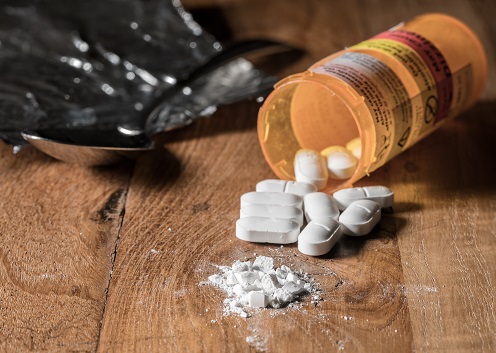Opioid Use Disorder
An opioid use disorder isn’t your fault. Opioids are highly addictive because they activate powerful pleasure centers in your brain. In opioid use disorder, also called opioid addiction, something that starts as rewarding turns into something you feel you can’t live without.
Opioid use disorder is common in Detroit and throughout Michigan. But recovery is possible — even if you’ve tried treatment before without success.
At Henry Ford Health, we offer a wide range of opioid use disorder treatments. Your care may include medications, such as suboxone or long-acting injections, and a variety of therapy options. Our addiction medicine program offers a holistic, patient-first approach. Our team always treats you with warmth, empathy and dignity.
What are opioids?
Opioids are powerful drugs that dull your senses and increase feelings of pleasure. They reduce pain and make you feel extremely good for a short period of time.
When the drug wears off, however, it’s common to want those pleasurable feelings and to use it again. You may also use the drug again to avoid feeling sick. For many people, this is how opioid use disorder starts.
Opioids include illegal drugs as well as medications doctors may prescribe to relieve pain after a severe injury or complex surgery. Some examples of opioids include:
- Codeine, a pain reliever commonly prescribed for mild-to-moderate pain
- Fentanyl, a pain medication that’s often made and sold as an illegal drug
- Heroin, a highly addictive illegal drug made from morphine
- Hydrocodone, a pain reliever prescribed for moderate-to-severe pain
- Morphine, a powerful medicine used for severe pain
- Oxycodone, including OxyContin®, a prescription opioid that blocks brain signals
- 7-hydroxymitragynine (7-OH or 7-Hydroxy), a powerful opioid created from the kratom plant
Kratom, sold as an herbal supplement, is not an opioid itself — but it can provide intense opioid-like effects. Using kratom can also lead to opioid use disorder.
Signs of opioid addiction (opioid use disorder)
Addiction to opioids can lead to:
- Difficulty fulfilling personal or professional obligations
- Inability to stop using opioids, even if you want to
- Increased opioid use, even when using it leads to negative consequences
- Isolation from others
- Overwhelming cravings for opioids
- Problems with your relationships, financial security or safety
- Stealing to obtain more opioids
Over time, opioid use can also cause physical symptoms, such as:
- Changes to your exercise habits, libido or hygiene
- Drowsiness or changes in sleep habits
- Flu-like symptoms
- Shaking, nausea or sweating when stopping opioids, known as withdrawal
- Unintentional weight loss
When you’re addicted to opioids, over time, you develop a tolerance. This means you need more and more of the substance to experience the desired effects. When this happens, you’re more likely to experience an overdose, which can be fatal. In recent years, more than 75 percent of all fatal overdoses involved opioids.
Who is at risk of opioid use disorder?
People are more likely to develop a disorder if they use opioids:
- In non-prescribed ways: Your risk of substance use disorder is higher if you take a larger dose than prescribed or take opioids more often than directed. Crushing a pill to inject or inhale also makes opioids more addictive — and it’s more dangerous. The medication gets delivered to your body all at once, raising the risk of an accidental overdose.
- Longer-term: Using opioids for more than a few days increases the risk of developing a disorder. For example, if you take opioids for five days or longer, the chances are higher that you’ll still be using opioids a year later.
Other genetic and environmental factors can also increase your risk of opioid use disorder, including:
- Age: People in their teens and early 20s have a higher risk of opioid use disorder.
- Family history: A family history of substance use disorder increases your risk of any substance misuse.
- High stress: Very stressful situations, such as being unemployed or living below the poverty line, can increase your risk of opioid use disorder.
- Mental health conditions: Research has shown a link between substance use disorders and certain mental health conditions, such as depression, anxiety or post-traumatic stress disorder (PTSD).
Treatment for opioid addiction (opioid use disorder)
If you’re dealing with opioid use disorder, there is hope. Our specialists are highly skilled in the complexities of opioid use disorder treatment. We work with you to understand your unique needs and offer you personalized treatment options.
Our goal is to meet you where you are and provide safe, effective care that brings lasting recovery. Find out more about the substance use disorder treatments we offer.
Contact us
Learn more about the unique aspects of each of our addiction medicine locations across metro Detroit and south central Michigan or request an assessment at:
.svg?iar=0&hash=F6049510E33E4E6D8196C26CCC0A64A4)

/hfh-logo-main--white.svg?iar=0&hash=ED491CBFADFB7670FAE94559C98D7798)
